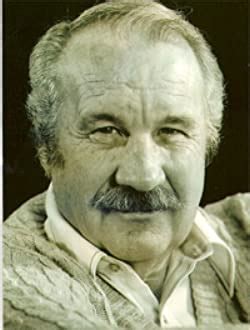A Quote by Alexis de Tocqueville
Men cannot abandon their religious faith without a kind of aberration of intellect and a sort of violent distortion of their true nature; they are invincibly brought back to more pious sentiments. Unbelief is an accident, and faith is the only permanent state of mankind.
Related Quotes
The blessed Paul argues that we are saved by faith, which he declares to be not from us but a gift from God. Thus there cannot possibly be true salvation where there is no true faith, and, since this faith is divinely enabled, it is without doubt bestowed by his free generosity. Where there is true belief through true faith, true salvation certainly accompanies it. Anyone who departs from true faith will not possess the grace of true salvation.
We don't always possess faith in the sense of having a clear embodiment of something to hang on to. The relationship between the intellect and faith is a very curious one. Sometimes the intellect can point us to faith, sometimes the intellect can stand in the way of faith. Sometimes, as St John of the Cross points out, we have to darken or blind the intellect in order to have faith.
Thanks in large measure to the ACLU, the belief that there is a wall of separation between faith and state, not just church and state, is endemic. The exercise of religious faith in the public square is not prohibited; only the federal imposition of a particular faith. Hardly anyone any longer knows the difference.
We cannot have faith without belief, but we can believe without having faith. Belief is the foundation of faith. Faith is trusting in our Lord and Savior, Jesus Christ. The scriptures contain many assurances of salvation to those who exercise faith and obey the commandments... Faith is the motivating force that impels action.
There is no grace more excellent than faith; no sin more execrable and abominable then unbelief. Faith is the saving grace and unbelief the damning sin. (Mark 16:16) ... Before Christ can be received, the heart must be emptied and opened: but men's heart's are full of self-righteousn ess and vain confidence (Rom 10:3).
Faith is indeed intellectual; it involves an apprehension of certain things as facts; and vain is the modern effort to divorce faith from knowledge. But although faith is intellectual, it is not only intellectual. You cannot have faith without having knowledge; but you will not have faith if you have only knowledge.
As soon as we ask what faith is and what sort of mistreatment of faith causes doubt, we are led to the first major misconception about doubt-the idea that doubt is always wrong because it is the opposite of faith and the same thing as unbelief. What this error leads to is a view of faith that is unrealistic and a view of doubt that is unfair.
It's a weak faith that only serves God in times of blessing. The book of Job teaches us that true faith, genuine faith, great faith is revealed only when we serve and trust God in the hard times, the times of suffering, loss, and opposition. That's the kind of faith that makes the world sit up and take notice.
Faith is indeed the energy of our whole universe directed to the highest form of being. Faith gives stability to our view of the universe. By faith we are convinced that our impressions of things without are not dreams or delusions, but, for us, true representations of our environment. By faith we are convinced that the signs of permanence, order, progress, which we observe in nature are true. By faith we are convinced that fellowship is possible with our fellow man and with God.
So let's set the record straight. Faith is not the opposite of reason. The opposite of faith is unbelief. And reason is not the opposite of faith. The opposite of reason is irrationality. Do some Christians have irrational faith? Sure. Do some skeptics have unreasonable unbelief? You bet. It works both ways.
We shortchange ourselves by regarding religious faith as a matter of intellectual assent. This is a modern aberration; the traditional Christian view is far more holistic, regarding faith as a whole-body experience. Sometimes it is, as W.H. Auden described it, 'a matter of choosing what is difficult all one's days as if it were easy.








































